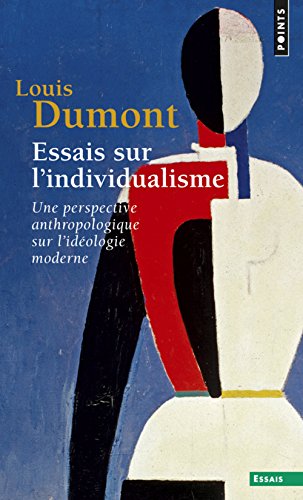L’idéologie moderne se caractérise par la subordination de la réalité sociale à l’individu, considéré comme un être absolument indépendant et autonome. Cette idéologie distingue les sociétés occidentales des autres, qui, au contraire, subordonnent l’individu à la totalité sociale.
C’est la genèse religieuse et politique de cet individualisme européen qui est ici étudiée, depuis ses origines chrétiennes jusqu’à ses développements les plus récents.
En reprenant les éléments de la méthode de Marcel Mauss, Louis Dumont dessine une anthropologie de l’homme moderne et démonte les mécanismes de l’idéologie individualiste.




